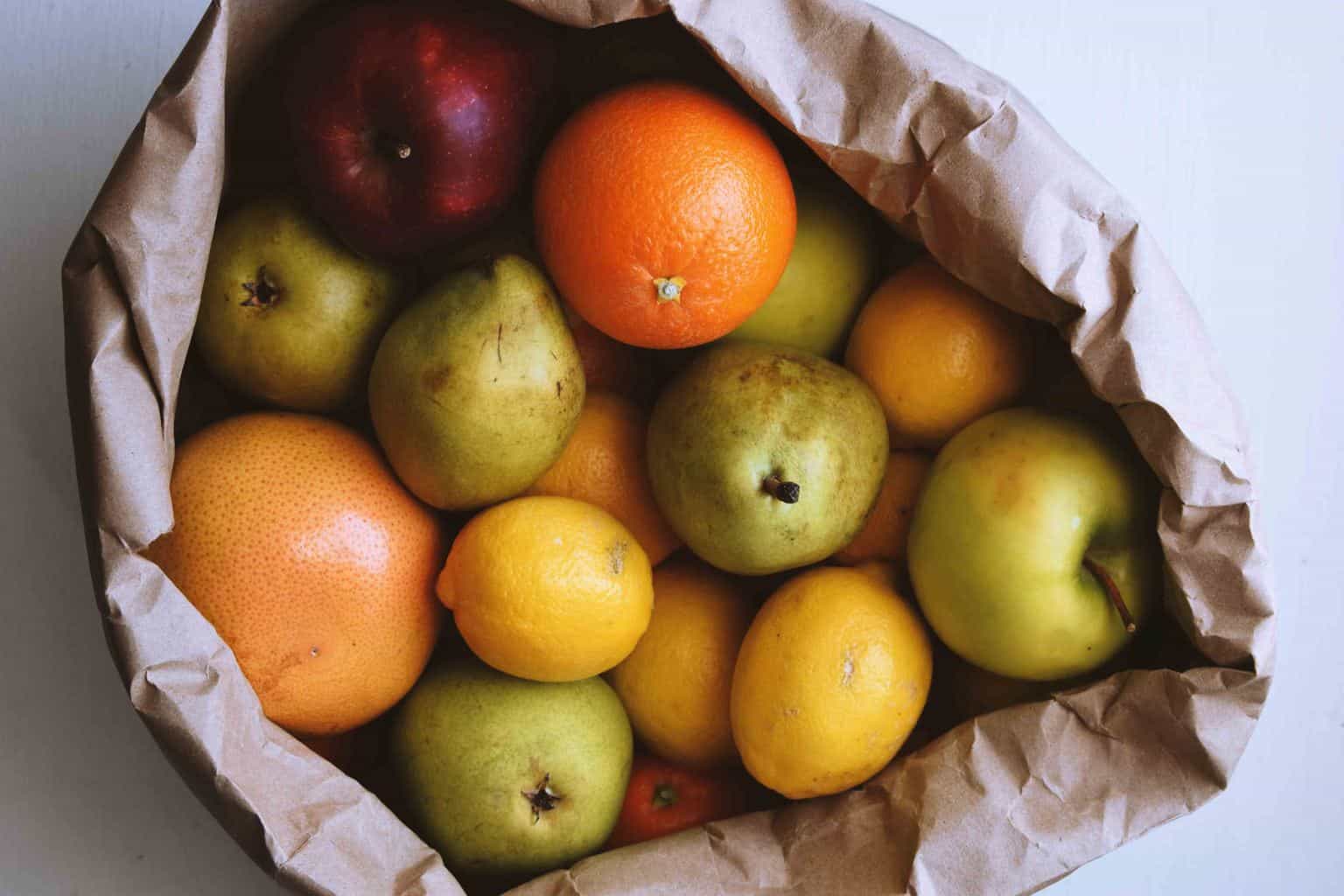- PhentermineLearn more about phentermine and how to get the most from your weight loss journey.
- ResourcesAdditional information and tools to help you make the most of your effort.
- AlternativesLearn more about the most popular weight loss medications and science-backed supplements
When Is The Best Time To Eat Fruit?
Published on December 9, 2024

Fruits are yummy and packed with goodness, but sometimes, we forget to include them in our meals. Maybe you’ve promised yourself more fruit every day. But then, you find yourself puzzled, thinking, “When should I really be eating fruit?” or “Is there a good or bad time to enjoy an apple?”. Yes, figuring out the ideal moment for a fruit snack can make you scratch your head. But don’t worry.
Today we explore these tricky questions and offer you the answers of a lifetime. The answers that we have to give you will surely give you peace of your mind, and most importantly, they will help you to get the most out of the fruits that you choose to eat.
Why do we need to eat enough fruit on a daily basis?
If you ever wonder what the most common health recommendation is that we keep hearing from doctors and researchers all around the world, that probably is – “Eat more fresh fruits and vegetables!”. But can you imagine why that is? Of course, we all know how nutritious, and highly beneficial for our health are all of the fruits that Mother Nature has to offer us, but we yet fail to understand their true importance and day after day, most of us fail to eat enough fruits and vegetables on a daily level.
For starters, fruit represents a natural source of fructose – the natural sugar that our body and mind need in order to maintain in an ultimate health condition. In addition, the fruit is highly filling, since it contains high amounts of fiber and water. In fact, by eating a single apple, you are reducing your hunger, introducing natural sugar to your body, and reducing the number of calories that you will intake throughout the day. The fibers found in fruits will help you control your blood sugar levels, cholesterol levels, and body weight, among other beneficial effects (1, 2, 3). Eating fruit is what will protect your heart as well (4).
But that is not all. The fruit is one of the best sources of the many vitamins and minerals that most of us do not succeed to intake according to the daily requirements. As you can see for yourself, there are multiple reasons why you may need to eat more fresh, seasonal fruit on a daily basis. But the question is – Is there a right time to eat fruit? And if it is, when is the best time to eat your fruit for the day?
What is the best time of the day to eat fresh fruit?
When you eat fruit, you would want to gain more than its great taste. That means gaining all of the vitamins and minerals that are present within the fruit of your choice. One of the biggest myth that people tend to believe is that there is no right or wrong time to eat fruit, when in fact, they are wrong.
The idea is to give your digestive system a real boost, gain all of the vitamins, minerals, and fiber that is within the fruit that you are eating, and that is only possible by practicing a few methods. Let’s look into the question of when and why is the right time to eat fruit throughout the day.
Right after you wake up
One of the best habits that you can create for yourself is to start off your day by eating a delicious, fresh piece of fruit. We recommend doing so right after you have woken up, made your bed, and washed your face. Those actions will help you wake up from outside, but eating fruit on an empty stomach will help you wake up on the inside, providing the boost that your digestive system craves in the morning. But why is that, you wonder?
You see, throughout the night, the digestive system processes any food that might have been left from the previous day, so when you wake up fresh in the morning, your digestive system awaits for more food to be introduced. That means that your gut is empty and ready for work. You would want to use this opportunity to eat a piece of fruit before you head off to eat or drink anything else, including your breakfast or morning coffee.
The trick lays in the enzyme that is being used to process fruit, as a way to extract all of the needed nutrients from it. The extraction and absorption of these very same nutrients are at its highest level when there is no other food being present in the gut at the same time. In addition, you would want to avoid the side-effects of the process of fermentation. If you eat your fruit along with other foods, you risk keeping the fruit way too long in the gut where the process of fermentation begins. As a result, you may experience diarrhea, bloating, and heartburn. You would not want to deal with these annoying symptoms, would you not? And to think that you can avoid them by simply kicking off your morning by eating a piece of fruit. Not to mention the opportunity that the fiber within the fruit will give you to avoid eating extra calories throughout the day (5).
Combine your fruit with a filling breakfast later in the day, and you have the recipe for the calorie deficit that you have been looking for! It will also be for the best if you wait around an hour before you get your breakfast so that the fruit would be nicely digested by the time you eat your scrambled eggs or oatmeal.
Papaya, watermelon, and apples are some of the best fruits that you can eat early in the morning. However, do save the bananas for later. Bananas are a great example of eating the right food at the worst possible time since they are filled with magnesium and potassium and are naturally acidic in nature, so they are bound to cause bowel problems if consumed on an empty stomach (6).
Before your workout
When you prepare for your workout, you would like to search for foods that would give you the energy that you may need to burn all of those extra calories in the gym. The trick is to find and consume foods that offer you great amounts of carbs that will be burned and used as a fuel for your body during your workout session. But it is not artificial sugars that you would want to go to for help. Instead, you should simply point your attention to eating fresh fruits which are already a great source of natural sugars.
Wash and eat your piece of fruit around 30 minutes before you start your workout session. Thirty minutes would be enough for the fruit to start digest in the gut, and its nutrients and carbs to be absorbed and converted into energy that you can actually use.
Remember how we said that bananas are to be eaten later in the day? Well, good news for all of you banana lovers out there – the time has come! In fact, bananas and mangoes are two of the best fruits for you to consume as you head off to your workout session. It is because of their high levels of potassium that helps restore the electrolyte balance after the workout that makes these two the power fruits that you crave (7).
After your workout
Fruits are to be eaten right after your workout as well. If you think about it, it is pretty self-explanatory. During your workout, you burn calories, lose energy, and your muscles, and your whole body gets tired (8). What you need in times like these, is something that will lift you up, provide energy, and muscle recovery.
So there is no reason why we should not rely on the tasty, seasonal fruits to do that for us. As we mentioned earlier, fruits are filled with carbs and natural sugars, which means that they will efficiently boost your energy levels. Plus, if you choose high-potassium fruits to consume once again, you will be helping speed up your muscle recovery. Bananas are once again, the fruit of choice. Pineapples, kiwi fruit, and all kinds of berries are all delicious choices that you should not miss out on as well. Perhaps a delicious fruit salad with all of these fruits mixed together is what will rejuvenate your body and mind after a power workout at the gym.
30 minutes before a meal
We need around three main meals and two to three snacks on a daily level to make sure that our bodies are functioning well, and we are not feeling hungry. So here is a great snack option – fresh fruit! Snack on some delicious, fresh fruit as a way to satisfy your hunger and boost your energy when you need it the most. Ultimately, we recommend snacking on some fresh fruit around 30 minutes to an hour before your main meal takes place.
By doing so, you will be able to reduce the number of calories that you intake with the main meal, boost your energy, and not feel hungry. You would like to choose from some of the most filling fruit options such as bananas, apples, dates, watermelon, and berries. This way, you will provide a chance for your fruit to be digested as it should, before you intake any other food, plus you will absorb all of the needed nutrients and boost your energy levels in the middle of the process.
One tip though – make sure that you do not eat any fruit at least 2-3 hours before you head to bed. The natural sugars from fruit that benefit you all day long might not have the same positive effect when you want to get a good night sleep. With your energy pumping, you will likely experience some issues trying to fall asleep due to all of the sugars from the fruit.
Conclusion
In conclusion, despite the popular beliefs, there truly is a right time in the day when you are supposed to eat your fruit. With that being early in the morning, before your workout, and after it, and of course, 30 minutes before your meal, these would be the right times for you to eat your fruit for the day. So you see, there really is such a thing as the best time to eat fruit. We hope that you will follow our advice and use it for the purposes of improving and preserving your good health.
References
(1) https://www.ncbi.nlm.nih.gov/pubmed/9925120
(2) https://www.ncbi.nlm.nih.gov/pubmed/18287346
(3) https://www.ncbi.nlm.nih.gov/pubmed/18031592
(4) https://www.ncbi.nlm.nih.gov/pubmed/16988131
(5) https://www.ncbi.nlm.nih.gov/pubmed/24030518
(6) https://food.ndtv.com/food-drinks/should-we-or-shouldnt-we-eat-bananas-on-an-empty-stomach-1677842
(7) https://www.inkin.com/blog/en/The-Best-Pre-Workout-Foods
(8) https://www.ncbi.nlm.nih.gov/pubmed/18834505


